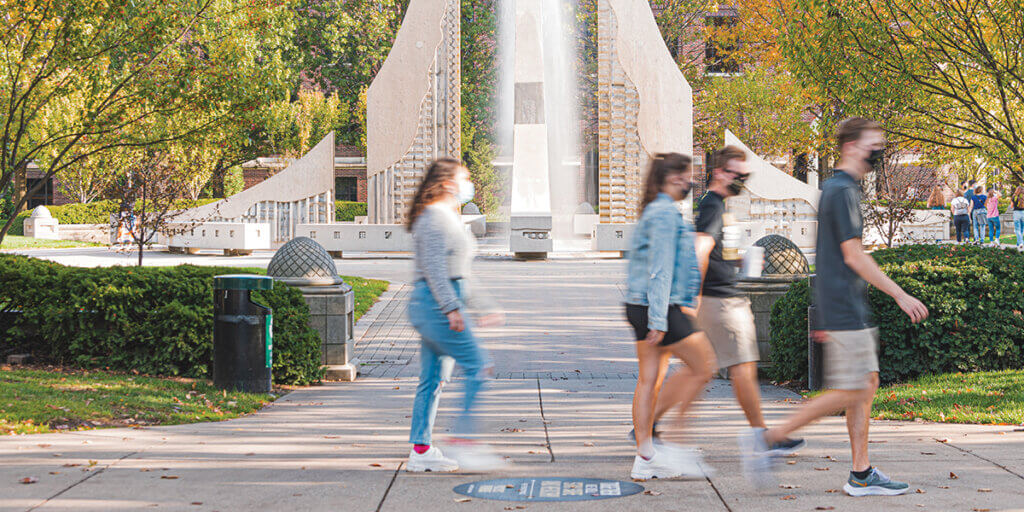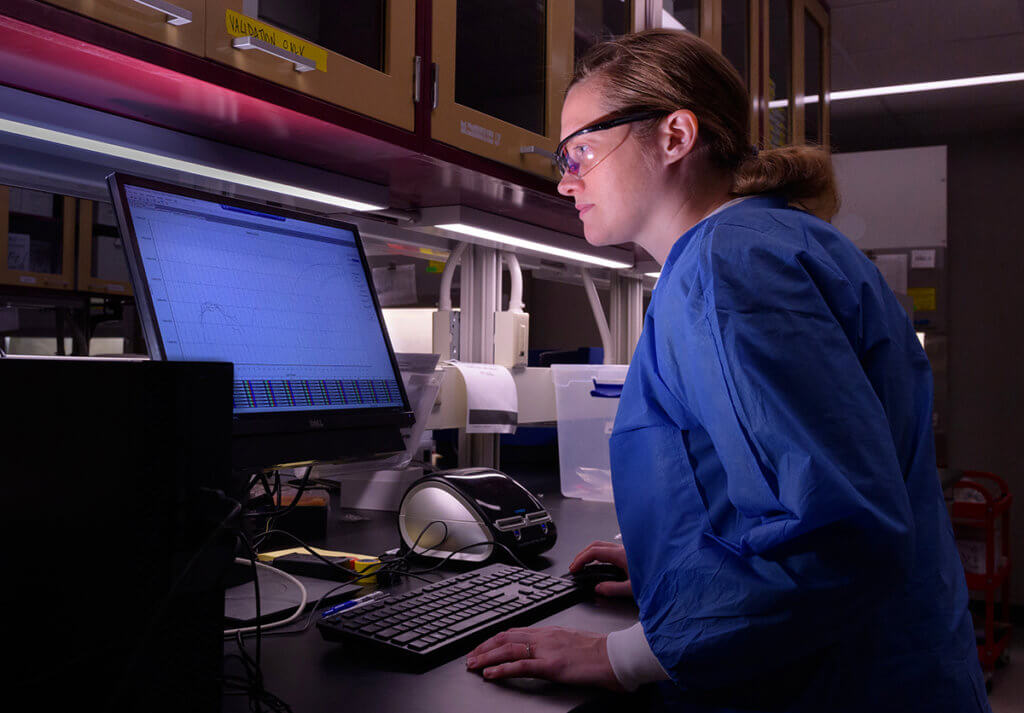
A cornerstone of the Protect Purdue Plan that guided Purdue University’s successful return to in-person instruction involves rapid and extensive COVID-19 testing and tracing. Playing a pivotal role in the testing program is the Animal Disease Diagnostic Laboratory (ADDL), a service of the Purdue University College of Veterinary Medicine.
“The ADDL has performed testing for on-campus diagnostic cases and student surveillance since August,” said Dr. Kenitra Hendrix, ADDL director and clinical associate professor of veterinary diagnostic microbiology. As of November, the ADDL also began handling testing for essential personnel.
“The Animal Disease Diagnostic Laboratory is playing a crucial role as part of the Protect Purdue Plan,” said Purdue Veterinary Medicine Dean Willie Reed. “The laboratory has a wide range of capability in providing diagnostics in the animal world, but now we are addressing the needs on the human side.”
The process of preparing the ADDL to test human COVID-19 samples began in the spring after Purdue leaders suggested using the ADDL to help address the state’s limited testing capacity and need for resources. The ADDL team then gained the Clinical Laboratory Improvement Amendments (CLIA) certification required for laboratories performing diagnostic testing of human samples. This was readily accomplished largely due to the ADDL’s established quality system. Dr. Hendrix said human samples are being tested using a PCR (Polymerase Chain Reaction) method that the ADDL uses regularly for animal specimens.

As the University implemented the Protect Purdue Plan, the laboratory, working with the Protect Purdue Health Center (PPHC), began testing samples collected from students, faculty, and staff at the beginning of the fall semester. “The ADDL’s testing capacity is core to the campus strategy for diagnostic and surveillance testing,” Dr. Hendrix said. “The PPHC and the ADDL have worked closely together to align sampling and testing schedules for maximum efficiency and the shortest time to results.”
As of late November, the ADDL had performed more than 85,000 SARS-CoV-2 (COVID-19) PCR tests on samples from Purdue faculty, staff, and students. “At this time the ADDL’s capacity for testing human COVID-19 samples is utilized solely by Purdue,” Dr. Hendrix explained.
Dean Reed emphasized that the ADDL team is well versed with the technology it is using for the testing. “The ADDL’s PCR test is really playing an important role in providing for the testing needs for the campus,” Dean Reed said. “I couldn’t be more proud of the faculty and staff of this important laboratory here on our campus.”
The effort to begin testing of human COVID-19 samples at the ADDL was shepherded by David Broecker, chief innovation and collaboration officer for the Purdue Research Foundation, and involves several partners including the foundation, the Indiana State Department of Health, Fort Wayne-based Parkview Health, and the Purdue community.
With the CLIA certification, the ADDL was able to begin using the PCR testing capability on human diagnostic specimens in April. “Our plan to help in this way does not diminish our capacity for animal testing,” Dr. Hendrix said. “Our primary mission is diagnostic support of animal health and the safety of the food supply, and that will remain our first priority.”
The ADDL is a Biosafety Level 2 (BSL-2) facility accredited by the American Association of Veterinary Laboratory Diagnosticians (AAVLD). BSL-2 laboratories are used to study moderate-risk infectious agents or toxins.

